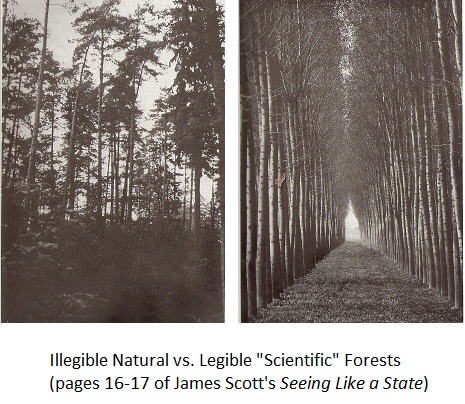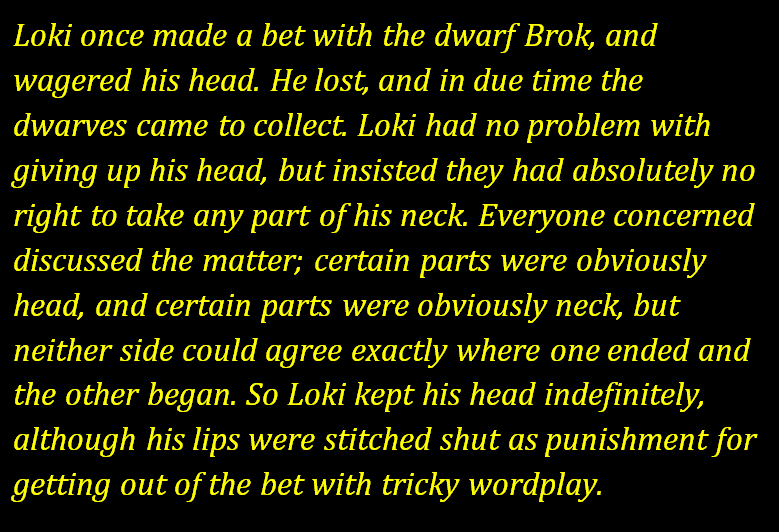The Curse of Knowledge: The more familiar you become with an idea the worse you become at explaining it to others, because you forget what it's like to not know it, and therefore what needs to be explained to understand it. Makes it hard to write threads like this!
Flow States: You're in flow when you're so engrossed in a task that the world vanishes and the work seems to do itself. Flow is automatic, and it makes work much easier than you imagined. All you have to do is overcome the initial hurdle of beginning a task; flow does the rest.
Parkinson's Law: Work expands to fill the time allotted for it. No matter the size of the task, it will often take precisely the amount of time you set aside to do it, because more time means more deliberation & procrastination.
Paradox of Abundance: Easy availability of food led to obesity for the masses but good health for the few who used the increased choice to avoid the mass-produced junk. Equally, you can avoid intellectual diabetes by ignoring junk info like gossip & clickbait. h/t: @david_perell
Network Effect: The more people using a network, the more useful it becomes. A phone gains utility as more people use phones because more people can be called with it. It's why Twitter & Facebook are so dominant; we're stuck on these platforms because everyone else is.
The Toxoplasma of Rage: The ideas that spread most are not those everyone agrees with, but those that divide people most, because people see them as causes to attack or defend in order to signal their commitment to a tribe. h/t: @slatestarcodex
Brandolini's Law (aka the Bullshit Asymmetry Principle): It takes a lot more energy to refute bullshit than to produce it. Hence, the world is full of unrefuted bullshit.
Benford's Law: Numbers in natural sets of data are not uniformly distributed (e.g. 30% of numbers have 1 as their first digit). Used by the IRS and other tax agencies to determine if you've lied about your finances.
The Law of Very Large Numbers: Given a wide enough dataset, any pattern can be observed. A million to one odds happen 8 times a day in NYC (population 8 million). The world hasn't become crazier, we're just seeing more of everything.
Scope Neglect: We evolved for the small scale of tribal life, so we can't comprehend the big numbers that recently entered human life. We can appreciate the difference between 50 and 100, but not a million and a billion. It's why we often treat geopolitics like family politics.
Abstraction: There are scales of explanation. A human can be considered a person, mammal, collection of cells, collection of stardust. Sometimes the reason people can't see eye to eye is that they're unwittingly considering things at different levels of abstraction.
Pareidolia: For aeons predators stalked us in undergrowth & shadow. In such times survival favored the paranoid—those who could discern a wolf from the vaguest of outlines. This paranoia preserved our species, but cursed us with pareidolia, so we now see wolves even in the skies. pic.twitter.com/9pxdCZ4MrN

Narrative Fallacy: When we see a sequence of facts we interpret them as a story by threading them together into an imagined chain of cause & effect. If a drug addict commits suicide we assume the drug habit led to the suicide, even if it didn’t. Another form of Apophenia is…
Apophenia: We impose our imaginations on arrangements of data, seeing patterns where no such patterns exist. A common form of Apophenia is…
Predictive Coding: There is no actual movement on a TV screen; your brain invents it. There are no actual spaces between spoken words; your brain inserts them. Human perception is like predictive text, replacing the unknown with the expected. Predictive Coding leads to…
Reactance Theory: When someone is restricted from expressing a POV, or pressured to adopt a different POV, they usually react by believing their original POV even more. For a detailed example read my piece on my attempt to deradicalize a neo-Nazi: areomagazine.com/2017/10/28/how…
Availability Cascade: When a new concept enters the arena of ideas, people react to it, thereby amplifying it. The idea thus becomes more popular, causing even more people to amplify it by reacting to it, until everyone feels the need to talk about it.
Shifting Baseline Syndrome: Frog says to Fish, “how’s the water?” Fish replies, “what’s water?” We become blind to what we’re familiar with. And since the world is always changing, and we're always getting used to it, we can even become blind to the slow march of catastrophe.
Legibility: We see a complex natural system, assume that because it *looks* messy that it must be disordered, then impose our own order on it to make it “legible”. But in removing the messiness we remove essential components of the system that we couldn’t grasp, and it fails. pic.twitter.com/LQqvpkFcMp

Radical Phase Transition (my term): Extremist movements can behave like solids (tyrannies), liquids (insurgencies), and gases (conspiracy theories). Pressuring them causes them to go from solid => liquid => gas. Leaving them alone causes them to go from gas => liquid => solid.
Goodhart’s Law: When a measure becomes a goal, it ceases to become a measure. E.g. British colonialists tried to control snakes in India. They measured progress by number of snakes killed, offering money for snake corpses. People responded by breeding snakes & killing them.
Subselves: We use different mental processes in different situations, so each of us is not a single character but a collection of different characters, who take turns to commandeer the body depending on the situation. There is an office “you”, a lover “you”, an online “you”, etc.
Loki’s Wager: Fallacy where someone tries to defend a concept from criticism, or dismiss it as a myth, by unduly claiming it cannot be defined. E.g. “God works in mysterious ways” (god of the gaps), “race is biologically meaningless” (Lewontin’s fallacy). pic.twitter.com/zKtZhRrj8K

Peter Principle: People in a hierarchy such as a business or government will be promoted until they suck at their jobs, at which point they will remain where they are. As a result, the world is filled with people who suck at their jobs.
Matthew Principle: Advantage begets advantage, leading to social, economic, and cultural oligopolies. The richer you are the easier it is to get even richer, the more recognition a scientist receives for a discovery the more recognition he’ll receive for future discoveries, etc.
Outgroup Homogeneity Effect: We tend to view outgroup members as all the same e.g. believing all Trump supporters would see someone wearing a MAGA cap, and think that person is also decent, honest, hard-working, etc.
Halo Effect: When a person sees an agreeable characteristic in something or someone, they assume other agreeable characteristics. Example: if a Trump supporter sees someone wearing a MAGA cap, he’s likely to think that person is also decent, honest, hard-working, etc.
Emotive Conjugation: Synonyms can yield positive or negative impressions without changing the basic meaning of a word. Example: someone who is obstinate (neutral term) can be “headstrong” (positive) or “pig-headed” (negative). This is the basis for much bias in journalism.
Nirvana Fallacy: When people reject a thing because it compares unfavorably to an ideal that in reality is unattainable. E.g. condemning capitalism due to the superiority of imagined socialism, condemning ruthlessness in war due to imagining humane (but unrealistic) ways to win.
Tocqueville Paradox: As the living standards in a society rise, the people’s expectations of the society rise with it. The rise in expectations eventually surpasses the rise in living standards, inevitably resulting in disaffection (and sometimes populist uprisings).